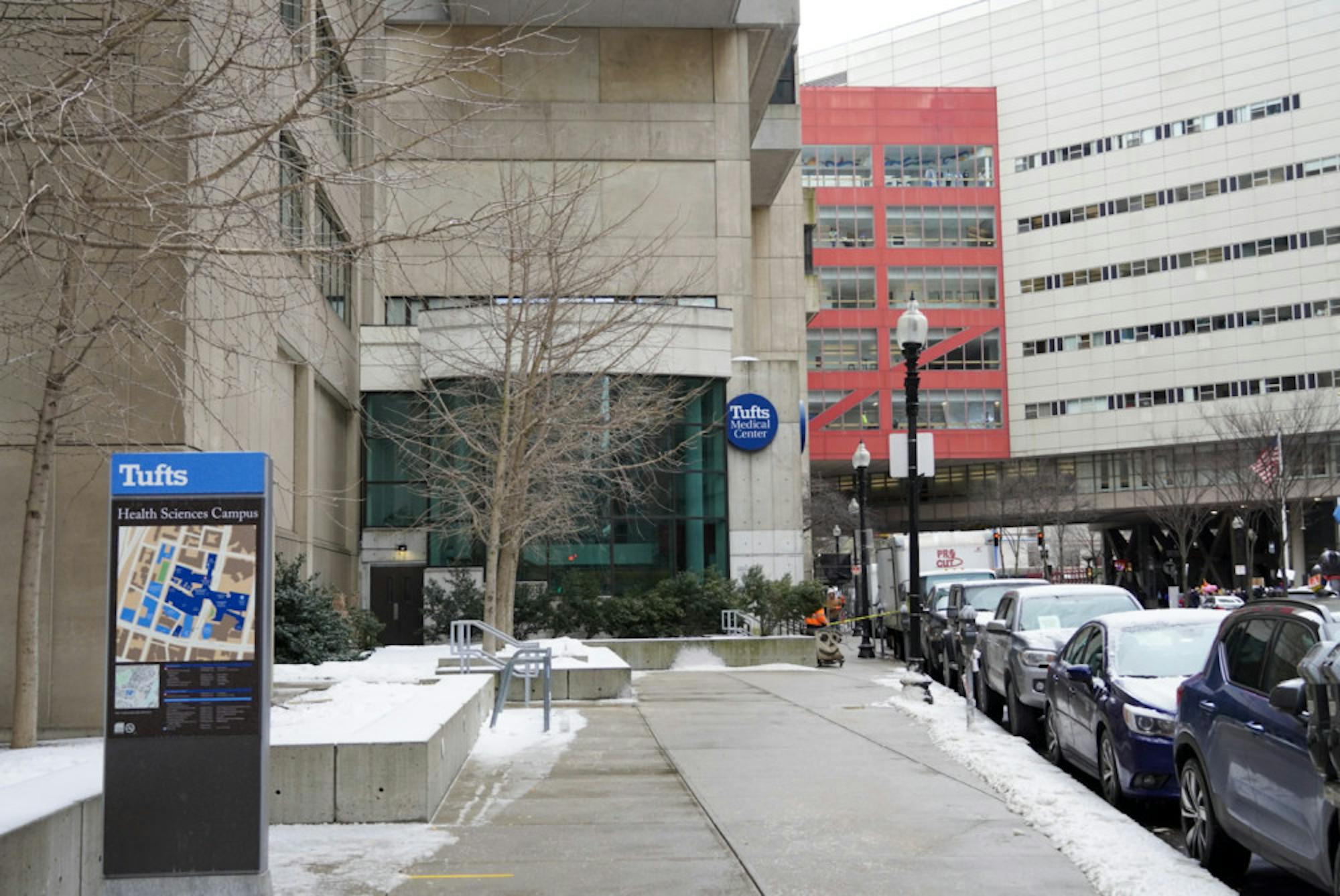Tufts announced on April 8 that it will open a new Center for Black Maternal Health and Reproductive Justice (CBMHRJ) within the School of Medicine. Dr. Ndidiamaka Amutah-Onukagha, the Julia A. Okoro professor of Black Maternal Health at the Tufts University School of Medicine, will direct the center.
The center aims toaddress systemic inequities in Black maternal health outcomes through research, advocacy and training. Black women in the United States are currently three times more likely to die from pregnancy-related causes than white women. Structural racism and implicit bias on the part of health care providers contribute to this disparity. In an interview with the Daily, Amutah-Onukagha stressed the urgency of the center’s work.
“We are fighting for Black lives,” she said. “There has to be an air of justice and an air of timeliness and priority.”
Before founding the CBMHRJ, Amutah-Onukagha launched the Maternal Outcomes for Translational Health Equity Research (MOTHER) Lab, a research, mentorship and advocacy center which addresses inequities facing Black women who give birth, in July 2020. Amutah-Onukagha is also the assistant dean of diversity and inclusion for the Department of Public Health and Community Medicine at TUSM and worked with colleagues Anthony Schlaff and Fernando Ona to develop an anti-racism curriculum for TUSM students.
Amutah-Onukagha told the Daily that her immediate priorities for the center include putting together a team of clinicians, researchers, faculty affiliates, medical students and community members, all of whom will be essential to the center’s success.
To begin, Amutah-Onukagha is focused on assembling a team of specialists from various community health and medical backgrounds.
“We’re going to be recruiting from my department, [from] Tufts Medicine, people that have an interest and commitment to Black maternal health or maternal health inequities,” Amutah-Onukagha said. “That looks like engaging with researchers, epidemiologists, nurses, clinicians, OBs. … Once we get those major players in house, then we’ll figure out [the] affiliated faculty and affiliated people that need to be at the table.”
She added that she hopes to “build a pipeline for doctoral students, for postdocs, for masters students [and] for clinician students” between the School of Medicine and the new center.
Once the CBMHRJ is up and running, its programming will focus on reproductive justice and anti-racism in medical education and medical practice.
“Everything we do has to have a lens of justice,” Amutah-Onukagha said.
The center will alsooffer doula training led by Black doulas.
“Doulas are a part of the public health and professional workforce that can help disrupt these [mortality] rates,”Amutah-Onukagha said.
Amutah-Onukagha emphasized that the center is a national-scale project and will need to be funded accordingly.
“I need $10 million for me to be able to fund the center, to fund my faculty leads, for me to be able to stipend my students, for me to be able to get the full time staff I need,” Amutah-Onukagha said. “This is a national coordinating center, so I need resources.”
In the future, Amutah-Onukagha plans to open a physical space for the center in Boston where students, researchers and specialists can collaborate.
“It would be incredible for us to be able to actualize and cement this dream in a way that is building a sustainable legacy for students,” Amutah-Onukagha said.
Amutah-Onukagha also emphasized that community interaction will play a key role in the center’s work.
“A physical building for the [CBMHRJ] is not for me — it’s for the community,” Amutah-Onukagha said. “Community members should be able to come here and grapple and talk and celebrate and strategize around how to reduce these inequities in their communities.”
The center will be the first of its kind in the country, and Amutah-Onukagha hopes it can serve as a blueprint for future institutions.
“I think this could be a national model because what we’re doing here is really unique,”Amutah-Onukagha said. “I want to highlight … community-engaged research, policy and mentorship of student development.”
Laura Baecher-Lind, dean of educational affairs at the School of Medicine and a practicing obstetrician and gynecologist at Tufts Medical Center, said that the center “is very exciting because it first recognizes the disparities that Black women face in obstetrics as far as increased morbidity and mortality … and helps us to work towards mitigating those risks and improving the health care that we deliver to our patients.”
Baecher-Lind noted that, since well-intentioned interventions can sometimes cause harm, the center will be instrumental in creating effective treatment measures.
“We want to be thoughtful in any interventions that we develop and implement to reduce the rates of disparities in obstetrics,” Baecher-Lind said. “That’s what the center will help us afford — doing this [research] in a strategic and evidence-based manner.”
Amutah-Onukagha announced the creation of the CBMHRJ on April 8 at the fifth annual Black Maternal Health Conference, which she founded and organized. Judith Jeanty, the conference coordinator, said that over 1,800 people registered to attend the conference.
“We had amazing physicians, pediatricians … just amazing speakers in their field who really were highlighting the policy needs for Black maternal health,” Jeanty said. “This is the crux. We need policy to make effective changes for women and mothers.”
Among the speakers at the conference were Sen. Elizabeth Warren, Rep. Ayanna Pressley and Chiquita Brooks-LaSure, the administrator for the Centers for Medicare and Medicaid Services under the Biden administration. During the conference, Amutah-Onukagha’s work was recognized and congratulated by the City of Boston.






